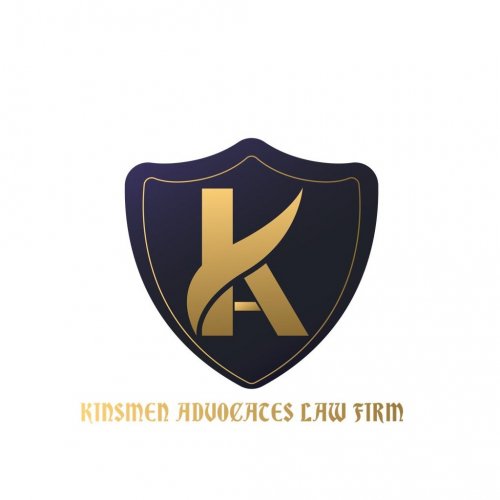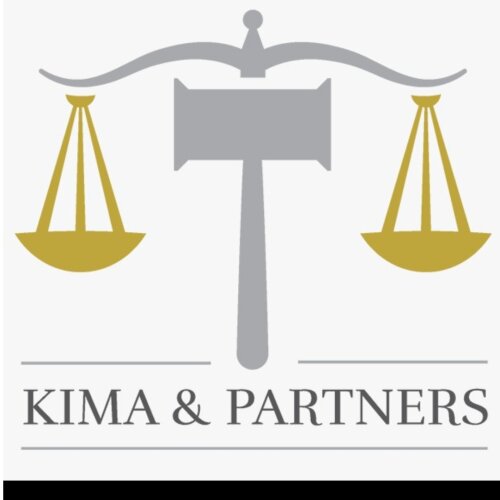Best Tax Increment Financing Lawyers in Buea
Share your needs with us, get contacted by law firms.
Free. Takes 2 min.
List of the best lawyers in Buea, Cameroon
About Tax Increment Financing Law in Buea, Cameroon
Tax Increment Financing (TIF) in Buea, Cameroon, is a financial tool used to stimulate economic development by capturing the future increases in property taxes generated by improvements in a defined area. It encourages investment in underdeveloped or economically stagnant regions by using the increased property tax revenue from the resulting development to finance the initial costs of improvement projects. While TIF has its roots in the broader context of public finance, local adaptations in Buea have tailored its use to address unique economic and developmental challenges faced by the community.
Why You May Need a Lawyer
Navigating Tax Increment Financing can be complex, especially if you are involved in large-scale development projects or if you're a municipal government considering TIF as a solution to economic challenges. Here are common situations where legal help might be required:
- Understanding the regulatory framework specific to TIF in Buea and ensuring compliance.
- Negotiating terms with local government authorities or private sector developers.
- Structuring financing arrangements that maximize benefits while minimizing risks.
- Resolving disputes that may arise during or after the implementation of TIF projects.
- Ensuring that TIF arrangements meet the public benefit test and align with community goals.
Local Laws Overview
The government of Cameroon has specific legislative frameworks that govern the implementation of TIF within regions including Buea. Key aspects include:
- Regulations pertaining to the allowable uses of incremental tax revenues.
- Legal requirements for designating a TIF district, usually requiring areas to meet criteria indicating blight or underdevelopment.
- Public participation processes and transparency obligations in initiating and approving TIF projects.
- Guidelines on how TIF funds can be applied, including restrictions to prevent misuse.
- Oversight mechanisms to ensure project goals are being met and public funds are protected.
Frequently Asked Questions
What exactly is Tax Increment Financing?
Tax Increment Financing is a tool that uses future gains in taxes to subsidize current improvements, which are projected to create the conditions for those future gains.
Who can initiate a TIF project in Buea?
TIF projects can be initiated by municipal governments, often in collaboration with private developers or other stakeholders.
What types of projects benefit from TIF?
Typical projects include public infrastructure improvements, affordable housing developments, and revitalization of blighted areas.
How is the incremental tax revenue determined?
Incremental tax revenue is calculated as the difference between property tax revenue at the time the TIF district is established and the revenue after redevelopment occurs.
What are the risks associated with TIF?
Risks include potential project failure, misestimation of tax revenue increases, and the diversion of funds from other public needs.
How long does a TIF district remain in effect?
The duration of a TIF district in Buea typically ranges from 15 to 25 years, depending on local regulations and project specifics.
Can any area be designated as a TIF district?
No, areas must generally demonstrate specific criteria such as blight, underdevelopment, or economic stagnation to be eligible.
How does TIF benefit the community?
TIF aids in community development by supporting projects that can increase property values, create jobs, and stimulate the local economy.
Are there limits to what TIF funds can be used for?
Yes, TIF funds are restricted to specific uses, typically aligned with the improvement goals of the TIF district such as infrastructure and public services enhancements.
Does TIF affect my personal taxes?
No, individuals’ existing tax rates are not affected by TIF; only the additional revenue generated from increased property values after redevelopment is used.
Additional Resources
For further information, consider reaching out to these resources, governmental bodies, or organizations:
- The Ministry of Finance and Economic Development of Cameroon for regulatory guidance.
- Buea Municipal Council for local insights and regulations on TIF projects.
- Chambers of Commerce can provide connections to businesses experienced in TIF.
- Local academic institutions which may offer studies or resources on economic development initiatives.
Next Steps
If you need legal assistance with Tax Increment Financing projects in Buea, begin by consulting with a lawyer experienced in local public finance and TIF regulations. Consider reaching out to legal associations in Cameroon for referrals. Prepare documentation related to your development plans or involvement with TIF, and outline your objectives and concerns to facilitate an efficient consultation process.
Lawzana helps you find the best lawyers and law firms in Buea through a curated and pre-screened list of qualified legal professionals. Our platform offers rankings and detailed profiles of attorneys and law firms, allowing you to compare based on practice areas, including Tax Increment Financing, experience, and client feedback.
Each profile includes a description of the firm's areas of practice, client reviews, team members and partners, year of establishment, spoken languages, office locations, contact information, social media presence, and any published articles or resources. Most firms on our platform speak English and are experienced in both local and international legal matters.
Get a quote from top-rated law firms in Buea, Cameroon — quickly, securely, and without unnecessary hassle.
Disclaimer:
The information provided on this page is for general informational purposes only and does not constitute legal advice. While we strive to ensure the accuracy and relevance of the content, legal information may change over time, and interpretations of the law can vary. You should always consult with a qualified legal professional for advice specific to your situation.
We disclaim all liability for actions taken or not taken based on the content of this page. If you believe any information is incorrect or outdated, please contact us, and we will review and update it where appropriate.










